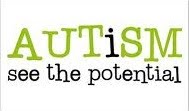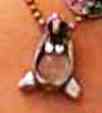|
Every weekend, I draft a "to do" list. Every weekend, I put myself at the top of the list. The "me" part of the list is where I prioritize the activities and opportunities to tend to myself, baby-step toward my goals, and experience my senses and perspective. I use the list to guard time to journal, take a walk outside, or read a good book. One of my favorite me-tasks is "nap/do nothing." I give myself permission and something like credit for resting. "Do nothing" is actually a specific resting position where I lie on my back on the floor against my bed. I rest my calves on the bed, thighs perpendicular to the floor, back flat, arms stretched out on the floor, and a small pillow under my head. It's a little awkward at first! But, soon, I feel all my joints and muscles relax, as if I'm sinking into the floor. I remind myself to relax my face and jaw. My thoughts are the last bit to settle as my brain is busy with all the things I should be doing, remembering, or planning. Sometimes, it helps to imagine I'm floating on a gentle river. I feel the sun warming my front while I'm supported by cool water. All I can hear is the easy lapping of small waves. I've organized my weekends with lists like this for a long time. (Here's a snapshot of the practice 11 years ago!) But I haven't always started the list with me. I concluded weekend after weekend with a clean and tidy house, a meal-plan, and laundry folded and put away, but a worn out and irritated me. Sometimes, those weekends still happen, but, for the most part, putting "me" at the top of the list ensures that I consistently take very good care of myself. How do you prioritize yourself amidst the chores, responsibilities, and relationships of your life?
0 Comments
It's been just over a year since my last "now" posting. This is now:
I'm working out my faith as one who hears the MADWOMAN's call. This is what I believe, today. Apostasy is a theological term for the renunciation of one’s religion. I didn’t grow up knowing this word or thinking about it. But I knew it was wrong or bad or crazy to reject the gracious gift of salvation from sin, eternal life, and the sacrifice of Jesus on The Cross. My Christian education was very clear about all of that. I didn’t want to be wrong or bad or crazy. I didn’t want to worry about Hell. Or reject a great and precious gift. Still, it was making me crazy claiming a faith I didn’t wholly possess. As a teen, I decided that it was normal doubt, a typical phase for an adolescent raised in the church, and took classes to bring me back to the core of the religion. When my father died, and I slid loose from clinging to his religion, those core beliefs couldn’t catch me. I landed hard. I surveyed what remained of my faith. Then, I started a slow, iterative, circling and cycling path to my own core beliefs. That included identifying and rejecting beliefs I’d been raised with and found vacant. For me, slow has meant years-long and riddled with more pauses than clarity. The process has been graced with good friends, good books, and a million pages of journaling. My apostasy began with simple, pragmatic, choices made from my gut. There were hymns I couldn’t sing anymore because of battle imagery or other language that neither articulated nor resonated with my understanding of good, the ineffable, and even the example of Jesus’ life. Soon, I took issue with lines of a creed or the tone of a prayer. There were entire sermons that left me cringing and crabby. Until I just didn’t go to church, anymore. There was nothing there for me but irritation and angst. I had to delete so much of the service that I was left with gaping holes where others gleaned instruction or comfort or community. I returned to church, briefly, in my mid-thirties. I was a new mother and aching for a community to share with and to receive support. The same script played out for me there. Vacancies developed within the services, as I closed my mouth from saying things I didn’t, and still don’t, believe. I wished I could play along to be part of the community there. But it chafed so painfully and I couldn’t settle in. I widened my search for “open and affirming” congregations and congregations with evidence of doing good work in the neighborhood or the city. I did find them. But the words, creeds, and sermons were in those places, too. After decades of resisting what I knew, intuitively, since childhood I turned inward to meet that message. I stopped fighting with the external definitions of God and Gospel. I listened closely to the good news I understood within me. I felt free to lay down each belief and practice that I denied. It released me from a binding tension, which had held me in one place in my spirituality. I entered into faith anew. Building my set of beliefs and actions. Finding my community one connection at a time. I finally accepted my apostasy, with a snicker and a smile, when I was able to also identify and claim my heresy. What is your apostasy? Play fast and loose with the idea. Don’t be limited to a particular religious instruction. Maybe it’s cultural canon that you are ready to lay down because it no longer rings true.
How do I create and maintain boundaries with Mom? My new therapist suggested we work with Tarot cards as a way to share a "surface" while we are doing sessions remotely. It was easy to say "yes" to that. I've been coveting a deck of cards that I saw in her office - the Ethereal Visions Illuminated Tarot Deck. My husband gave it to me for Christmas and I've started playing with the cards in simple, one card, readings. We've also been talking, in therapy, about my very challenging relationship with my mother. It's going on 17 years since I moved across the country and away from her and my siblings but, wow!, still!, I am triggered easily by her behavior, way of talking to me, and even individual words she says. It's upsetting, distracting, mood-disrupting, and just ugly for me. Distance, alone, isn't enough of a boundary between me and Mom. A few days after Christmas, I opened my new deck of cards. I shuffled them, laid them face-side down, and spread them in an arc. I asked one question, "How do I create and maintain boundaries with Mom?" I drew one card. The two of pentacles. Such a lovely card! A young woman dancing energetically. Waves ebb and flow behind her. An infinity sign wraps around the ground below her indicating perpetuity and potential. She holds a pentacle in each hand, like weights being balanced. Her face is serene and her hair flows out behind her, riding the motion of her steps. After sitting with my first impressions of the image, I visit Google. How do others (experts?) interpret this card? My favorite interpretation is also the most encouraging. Little Red Tarot suggests that I am capable of handling this challenge, this balancing act, this dance. It advises me to find my "sweet spot" where I can manage the weight and the sway. The interpretation also grants that I may need to ask for practical help or even lay something down. And that's ok. In conclusion, this interpretation notes that it might be time to make a decision. Either/or? Both/and? Today, I'm holding with both/and. I can be myself and I can have a different relationship with Mom. It requires change and balance - that persistent wobbling to find a sweet spot. Which means, ugh, this will require energy and time, like maybe I'm dancing these moves forever. And it means, oh, I can do this, I can be creative about it, and I can ask for help. I have choices. My first choice is obvious to me. I'm laying down that very heavy "good daughter." She's the one who ensures current photos are up on Facebook or otherwise available to Mom. She arranged the family video call at Christmas. She always replies to texts and calls and says thank you and cushions any possible disappointment for her mother and never asks to be seen or heard as anything other than a "good daughter." She's also a terrible dancer and she's wearing me out. My brain knows that it's going to take some energy and time for the "good daughter" to be replaced by... who? What is the name of the daughter, me, in the sweet spot? I'm dancing my wobbly balancing dance to meet that version of me.
We're pretty content, right now. J and I have been married for almost a year. Yes, life as a blended family, who are together all the time due to a global pandemic, includes some ongoing challenges. Yet, life as a family, in our own home, with garden beds in the front and back yards, with neighbors who are friends, is good. Which makes me wonder... what's next? For each of us? For the family we are becoming? What will we choose and how will we support each other in achieving those new goals? I feel like it's time for me to push through and out of another shell. I list possibilities in my journal of what my "next" could be. I'm thinking in two directions: outward into the community of my son's school and our district, and inward into some special reading and writing. Both of these directions have been calling to me for a while, but I've always felt too tired, too distracted, too small to begin. Things needed to be stable and I needed to feel better, energized, ready. Now, I think that if I wait any longer I will become cemented in my contentment. I wonder how many people feel ready for what's next. I observe some folks who make tidy paths of milestones, each achievement qualifying them to pursue the next. How do they do that? What guides them or fuels them for such a course? My path is scribbled and overlapping. I am often disoriented and simply road weary. Now, however, I can see and appreciate what we have here. It was a long and uncomfortable journey to reach this place. So, I will step, next, more fully into where I am.
Today is Mothers' Day and, as celebrations go, it was a dud. Kiddo was out with his dad. J was digging a foundation for the new shed. I went grocery shopping. The store was crowded, despite going at my usual Sunday morning hour, and everyone appeared to be purchasing flowers, plants, cards, gifts, and ingredients for festivities with moms. Driving home I was surprised by a wave of sadness. Mothers' Day has rarely been a big deal for me. N's dad wasn't really into it, and it's awkward to take your own young child to purchase a card or gift for yourself, so I accepted it as a flimsy excuse for a Hallmark card event. But, ugh, no event for me and my motherhood. This year, I am keenly aware of my relationship with my son in a different way than prior years. Partly, it's because he's 12 and relates to me in a different way than he did as a smaller child. Partly, it's that we're under a stay-at-home order so we are together, each day, more than we have been since he was a newborn. I enjoy his company, (most of the time... he is a tween). I welcome his ideas, interests, and developing perspective. I'm surprised by his vocabulary. I'm laughing to tears from his comedic timing. If you know me well, then you know I wasn't planning to be a mother. I was a newlywed anticipating a two career household, with a cat, and no children. I looked forward to fulfilling work, out there, in the world, and hopes for comfortable compensation in the future. But kiddo came along and everything changed, as they warn you it will, and now it's 12 years into this mothering gig and I'm missing my kid on Mothers' Day. And that's a good feeling. I'm grateful for this darn kid and I'm grateful to be his mother.
Recent days have been bumpy. Each day with its own series of ups and downs and back up again (mostly). Because the "new normal" doesn't arrange itself overnight. We create it one small course correction at a time, which bring us closer to stability, familiarity, and a sense of normal. Things that are working in my house: making art, physical activity outdoors, planting seeds (literally) for a big new garden, revising the schedule of working-at-home and school-at-home, practicing patience and mercy (aka grace) with ourselves and each other. What's working in your home? What fails are you either learning from or just moving on from? It all counts. "Where is balance in your life?" the question is our homework assignment from the circus lessons coach. I've considered my answer and I'm happy with it. I am seen, known, and loved for who I am. I dwell in my close relationships with my husband, son, and besties. I enjoy my home. My daily routine generates only a minimum of stress for me. My life is safe, secure, and stable. Rooted in this place of comfort and warmth, I'm reaching out, stretching, and challenging myself. The vital tension between comfort and growth is how I'm balanced. At 45 years old, my heaviest weight, and lowest level of physical fitness, I'm enrolled in circus lessons and enjoying them. I just received my A1C (blood sugar) test results - my highest/worst numbers to date. So, J and I have embarked on a focused and intentional diet to bring my blood sugar back within healthy boundaries and maybe shed some pounds in the process. I'm walking in the evenings, inconsistently but persistently. I'm tending to my body, my physical self care and presence, in new and supported ways. I've planned a solo adventure. In October, I'm attending the Evolving Faith conference in Denver. The ideas, experiences, and emotions of how one's spirituality and/or religion may change over time is one of my passionate interests. Ultimately, I'll be traveling alone to meet and engage with strangers, pushing through the membranes of my introversion. It's been almost a year since I created and hosted my first retreat. It went smoothly yet it left me exhausted and sensitive to all the areas for improving the event. It also reminded me of how much I value and enjoy small gatherings of women talking together about substantive, real-life, heartfelt topics. This year I'll host more of these group conversations in my home, starting with one this month. And, I'm revising the retreat for a new participants. There are more ideas for stretching still percolating through my mind, but this is where I'm balancing, today. It's a vibrant, creative, growing space between the comforts of home and the unknown out there.
I’ve been learning and inconsistently practicing new habits to improve my health in the last couple of years. My naturopath, desperate to get through to me, once asked me if I wanted to “be here.” As in, did I want to be alive. I took the question home, thought and journaled about it for a week or so, and decided that yes, I want to be alive. I wanted to be alive for my son, especially. Now, I add to that my partner and future husband. My friends. My garden. Do you see the pattern there? It’s a small and personal world that I live in and live for. I wonder, is that really enough to make my life worth living? See, I was raised an Evangelical Christian in the United States in the latter part of the 20th Century. And while individualism, trickle-down economics, and oat bran bear no resemblance to the Gospel, somehow religion was tangled up with the contemporary culture. In the midst of the dissonance, the religion identified itself through symbols of personal piety like, proscribing sex outside of heterosexual marriage, campaigning against abortion and anyone associated with them, and conflating the AIDS crisis with the so-called "abomination" of homosexuality. But the text of the gospels, whether taken as a summarized whole or proof-texting parts, doesn’t provide a lot of instruction on personal matters. Rather, it dwells on issues that affect the collective and show up publicly. Issues like poverty and greed, genuine hospitality for society’s outsiders, and otherwise living one’s life in contrast to the dominant culture’s power structures and definitions of worth. As a child, I accepted the faith and its religion in earnest. But disconnects between the words we said as a congregation and the way we lived in our homes and daily lives, occasionally broke through and concerned me. Those concerns developed into a heavy tension as I matured. If the spiritually faithful were in action unfaithful, what was the point of the faith? If the congregation lives according to the prevailing culture rather than its proclaimed savior, which demonstration of their faith is true? Ultimately, I judged culture the winner in this competition. It was a relief. I cut loose from the tension. I freed myself of the obligation to follow Jesus’ example. I chose values like personal security, private property, physical health, and my immediate relationships. But Jesus’s life, and that original tension, hovers around me. Jesus didn’t preach about raising children, saving for the future, or delaying death through proper nutrition and daily exercise. Those things are cultural and they still matter to me. So I don’t measure up to his example. I’m making no effort to measure up and simply won’t. Is there a way to live within the tension of the dominant culture and the example of Jesus? Something more than financial donations and social media posts denouncing the powers that be. I really don't know. In the meantime, maybe I can register some faint shimmy on the Richter scale of practice. That, to me, is the path to a life worth living.
I haven't been writing here in a regular way for ages. Real life occupies my mind, time, and energy so much. Here's what I'm doing now:
|
About Jenni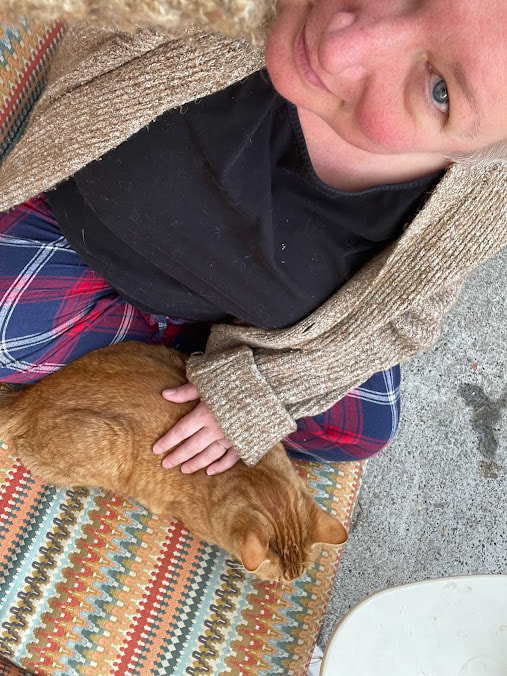 God is the madwoman in the attic.
I'm camped out on the threshold with my journal, camera, & plenty of snacks. God is the madwoman in the attic.
I'm camped out on the threshold with my journal, camera, & plenty of snacks.
Categories
All
Out of the Attic
This blog started in 2006
on Blogger as Out of the Attic. I began posting here in April 2014. Please visit the original site for the rest of the story on topics like: |
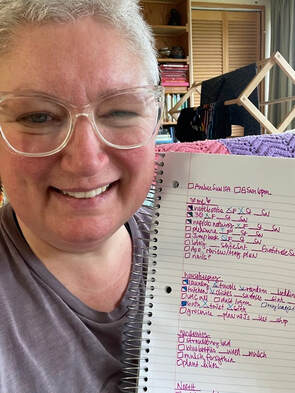
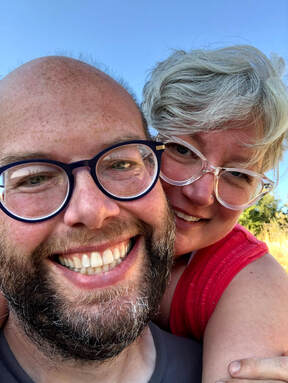
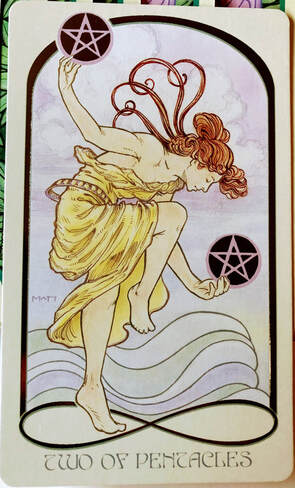
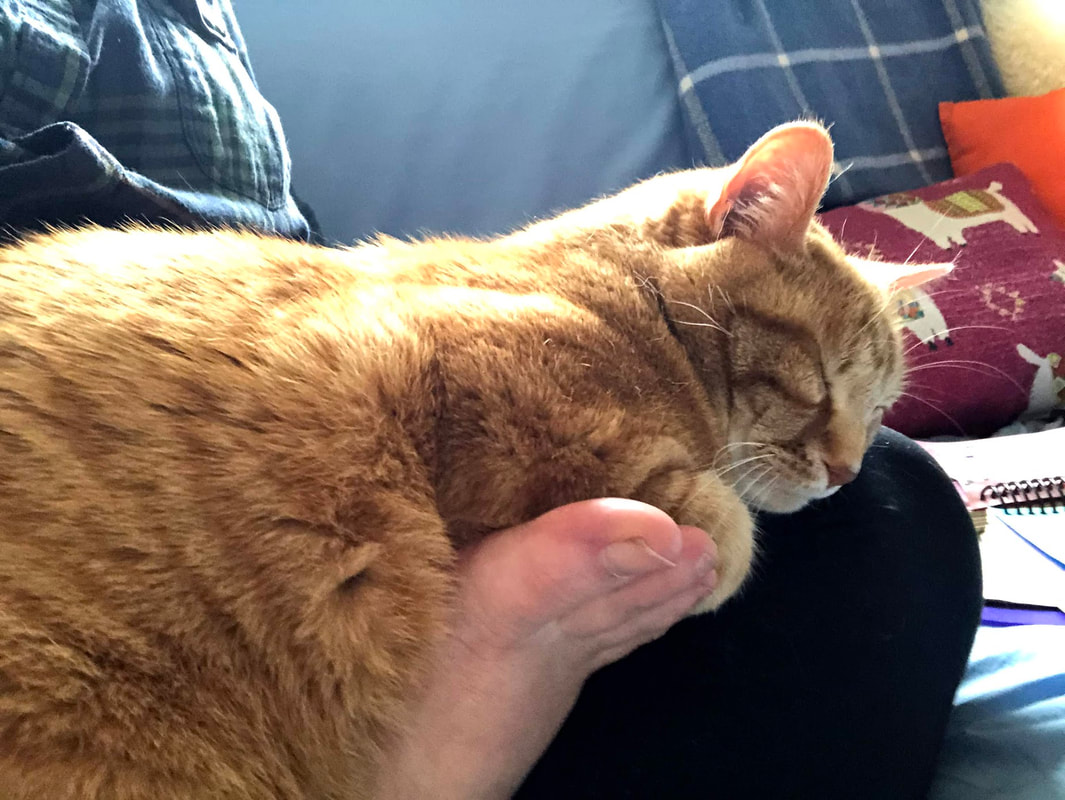
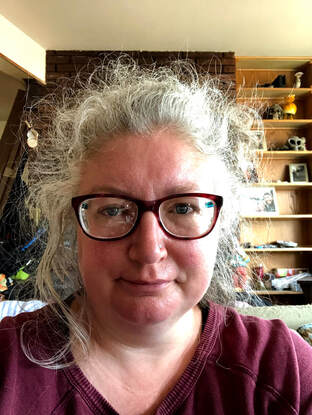
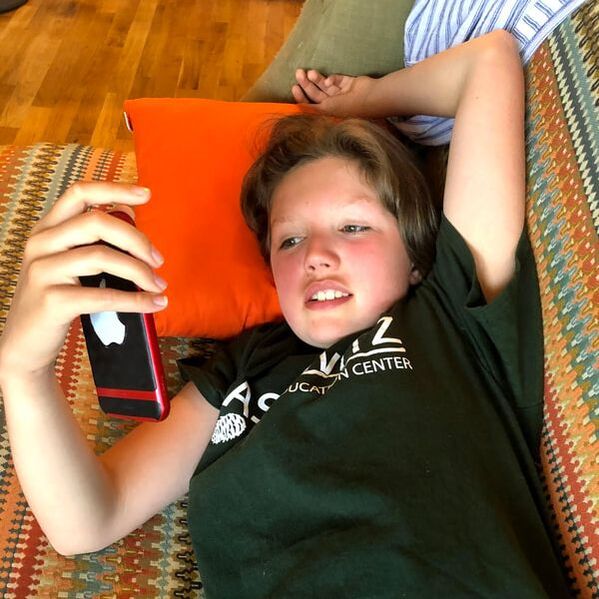
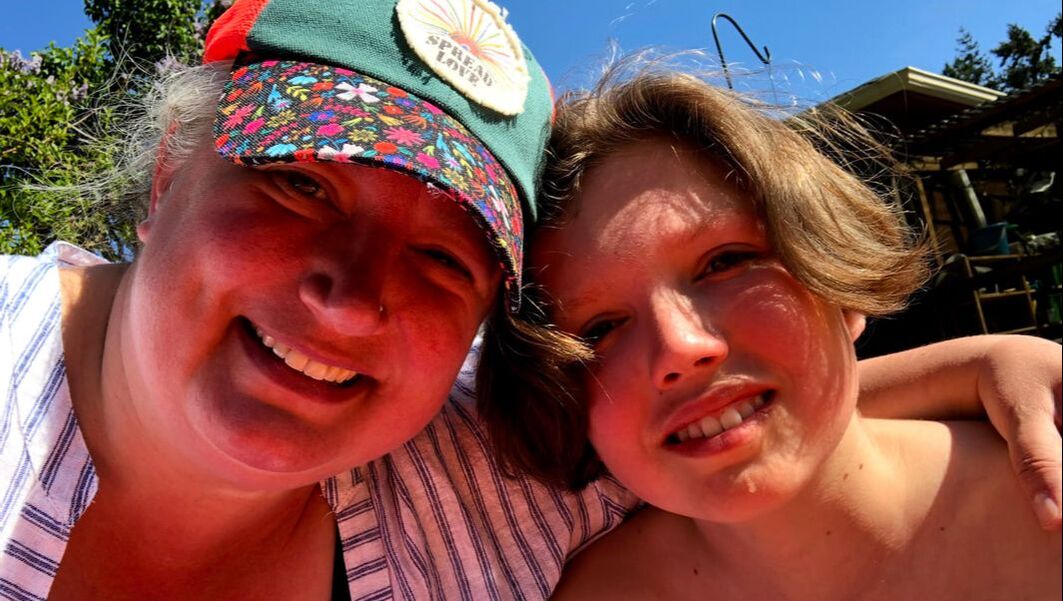
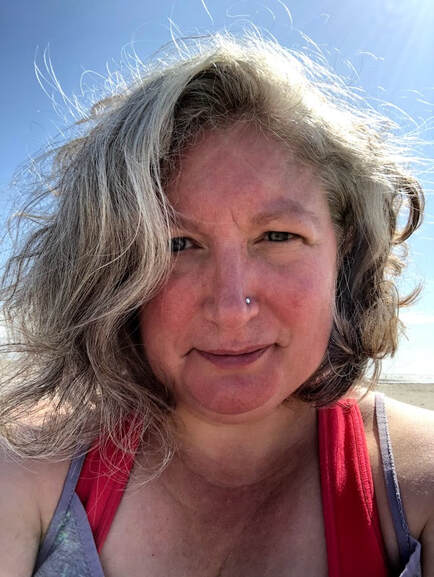
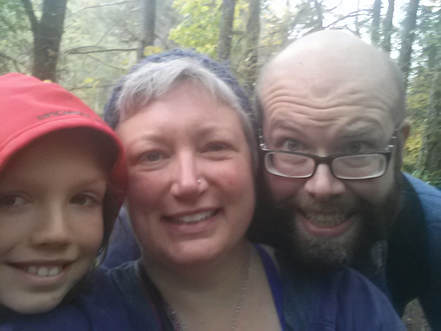
 RSS Feed
RSS Feed
